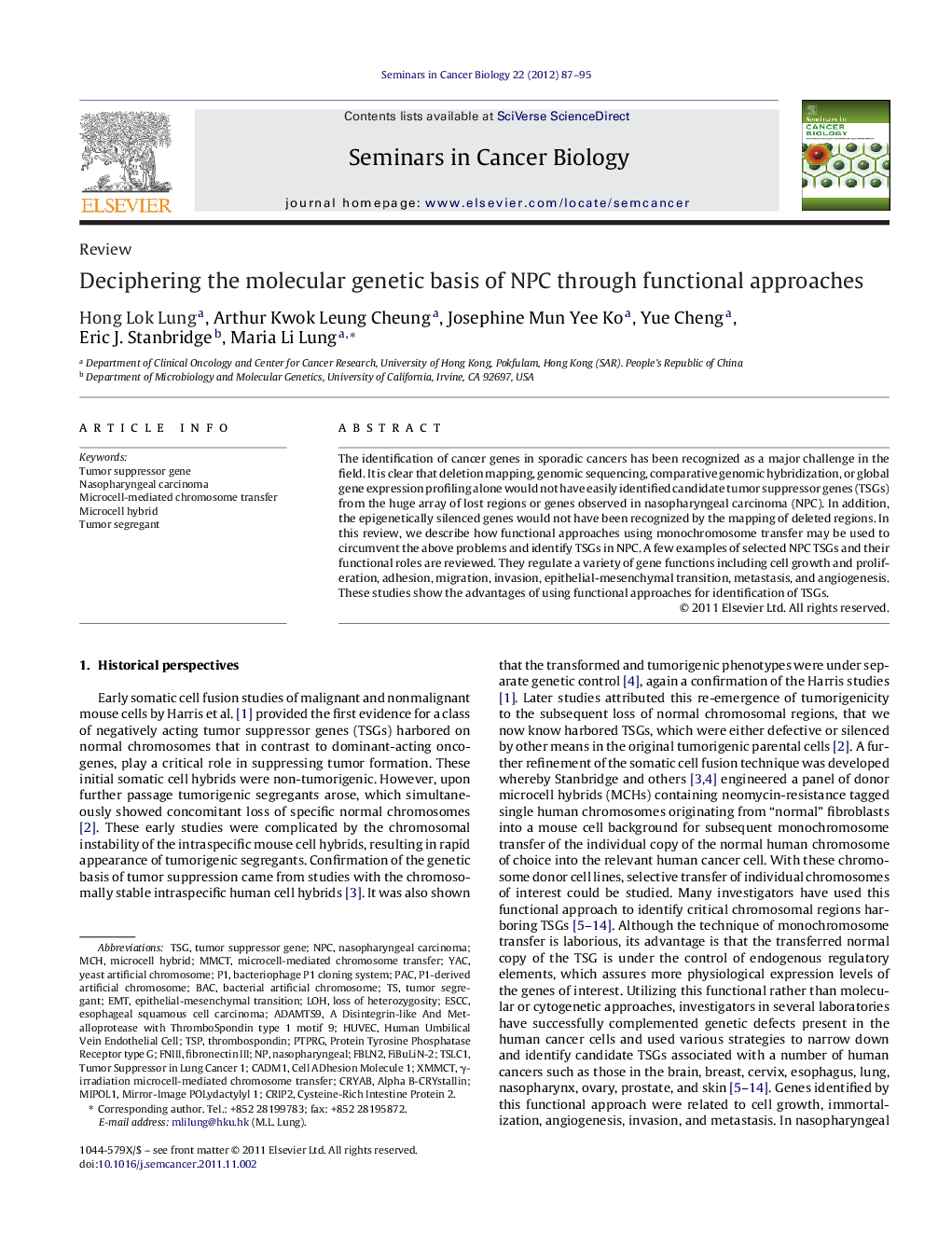| Article ID | Journal | Published Year | Pages | File Type |
|---|---|---|---|---|
| 2023836 | Seminars in Cancer Biology | 2012 | 9 Pages |
Abstract
The identification of cancer genes in sporadic cancers has been recognized as a major challenge in the field. It is clear that deletion mapping, genomic sequencing, comparative genomic hybridization, or global gene expression profiling alone would not have easily identified candidate tumor suppressor genes (TSGs) from the huge array of lost regions or genes observed in nasopharyngeal carcinoma (NPC). In addition, the epigenetically silenced genes would not have been recognized by the mapping of deleted regions. In this review, we describe how functional approaches using monochromosome transfer may be used to circumvent the above problems and identify TSGs in NPC. A few examples of selected NPC TSGs and their functional roles are reviewed. They regulate a variety of gene functions including cell growth and proliferation, adhesion, migration, invasion, epithelial-mesenchymal transition, metastasis, and angiogenesis. These studies show the advantages of using functional approaches for identification of TSGs.
Keywords
CRYABMicrocell-mediated chromosome transferCADM1Fibronectin IIIFNIIITSGMMCTTSLC1YACESCCAlpha B-crystallinNPCMCHP1-derived artificial chromosomeHUVECTSPPACADAMTS9BACloss of heterozygosityThrombospondinEMTHuman umbilical vein endothelial cellLOHCell adhesion molecule 1NasopharyngealTumor suppressor geneEsophageal squamous cell carcinomaNasopharyngeal carcinomabacterial artificial chromosomeYeast artificial chromosomeEpithelial-mesenchymal transition
Related Topics
Life Sciences
Biochemistry, Genetics and Molecular Biology
Biochemistry
Authors
Hong Lok Lung, Arthur Kwok Leung Cheung, Josephine Mun Yee Ko, Yue Cheng, Eric J. Stanbridge, Maria Li Lung,
